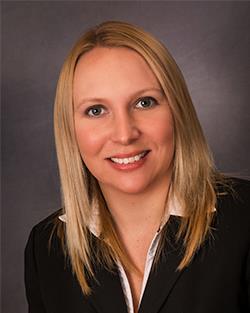Senior Associate Attorney Craig E. Kauzlarich has been reappointed to the United States Criminal Justice Act Panel through which he represents federal criminal defendants before the U.S. District Court for the Middle District of Pennsylvania and the Federal Third Circuit Court of Appeals.

He is one of nine Harrisburg area attorneys to be appointed to a three-year term on the Panel. Among other qualifications, panel attorneys must be up-to-date on federal defense law developments, versed in electronic discovery methods, and meet ongoing training requirements under the Criminal Justice Act enacted in 1964.
Panel appointments are for three years.












 Three Senior Associate Attorneys have been named Super Lawyer Rising Stars by the Thomson Reuters rating service.
Three Senior Associate Attorneys have been named Super Lawyer Rising Stars by the Thomson Reuters rating service. Attorney
Attorney 






